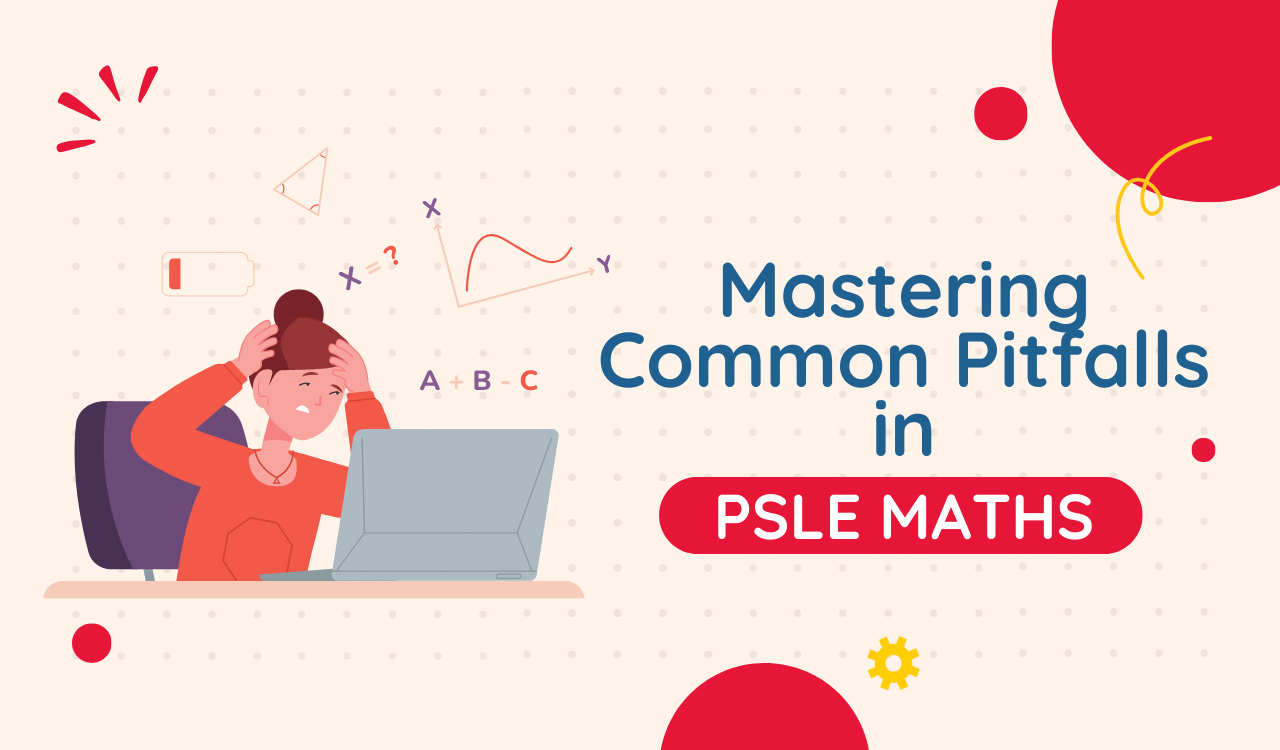Primary School Leaving Examination (PSLE) Math can be a source of anxiety for students and parents alike. It’s often considered a challenging subject that requires a combination of memory, application, and analytical skills. However, the journey to mastering Math does not have to be fraught with confusion and stress. Students can find their footing on steady ground by understanding and addressing the common pitfalls.
In this post, we’ll explore some of the frequent difficulties faced in PSLE Math and provide strategies to overcome these challenges. This guide is for primary school parents looking to support their children, PSLE students aiming for excellence, and math enthusiasts interested in educational strategies.
1) Misinterpreting Questions
One major roadblock to scoring well in Math is needing to be more accurate in what a question is asking. This can lead to incorrect answers despite having the necessary mathematical skills to solve the problem.
Strategy:
- Encourage students to read questions multiple times.
- Break down complex sentences into simpler parts.
- Use highlighters to emphasise key terms and figures.
- Practice with varied question types to become familiar with the language used in Math problems.
2) Careless Mistakes
Even the best mathematicians can make simple errors in calculation or transcribing numbers. Such mistakes can hurt test scores significantly.
Strategy:
- Teach students to double-check their work.
- Allocate time specifically for revision after completing the paper.
- Introduce checking methods such as estimation to ensure answers are realistic.
- Cultivate a systematic approach to solving problems to reduce the risk of oversight.
3) Struggles with Time Management
Managing time during exams is critical. It may mean leaving questions unanswered or making hurried mistakes.
Strategy:
- Practice timed assessments to improve speed and efficiency.
- Train students to first identify and approach more straightforward questions for quick wins.
- Teach time allocation techniques, for example, spending proportionate time on questions based on their marks.
- Learn to recognise when it’s time to move on from a problem.
4) Conceptual Misconceptions
Conceptual misunderstandings can lead to systemic errors, challenging a wide range of questions.
Strategy:
- Ensure strong foundational knowledge by revisiting core concepts.
- Use visual aids and manipulatives to clarify abstract ideas.
- Address misconceptions immediately when they arise.
- Engage tutors or join study groups for additional support in tricky areas.
5) Anxiety and Stress
Exam stress can impede a student’s ability to perform, even if they are well-prepared.
Strategy:
- Build a consistent study routine to reduce last-minute cramming.
- Teach relaxation techniques such as deep breathing or meditation.
- Encourage a healthy diet and adequate sleep for optimum performance.
- Foster a positive attitude towards Math; it’s a skill that can be improved with practice.
PSLE Math is integral to the primary school curriculum and the foundation for future math-related learning. Students can enhance their understanding and improve scores by focusing on these common pitfalls and implementing targeted strategies.
Remember, overcoming these challenges is a journey that requires patience, persistence, and the right approach. Parents, be there to support your child through encouragement and empathy. Students, trust in your abilities and tackle each problem one step at a time. Let’s demystify Math and transform it from a trepidation subject to triumph.
May the joy of solving be with every student embarking on the mastery of PSLE Math! 📚✏️
—
For more educational insights and support, follow our blog regularly. We aim to provide valuable resources that empower students and parents in their academic endeavours. If you found this post helpful, please share it with others on the same math journey as you. Together, we can make learning an adventure worth embracing.


